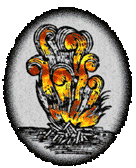This is your morning Open Thread. Pour your favorite beverage and review the past and comment on the future.
Find the past “On This Day in History” here.
November 5 is the 309th day of the year (310th in leap years) in the Gregorian calendar. There are 56 days remaining until the end of the year.
On this day in 1938, Samuel Barber’s Adagio For Strings receives its world premiere on NBC radio
Adagio for Strings is a work for string orchestra, arranged by the American composer Samuel Barber from the second movement of his String Quartet. Barber finished the piece in 1936, and in 1938, it was conducted by Arturo Toscanini. Toscanini’s conducting was recorded at 8H Studio for radio broadcasting. Toscanini took the piece on tour to Europe and South America. It is disputed whether the first performance of Adagio in Europe was conducted by Toscanini or Henry J. Wood. Barber has rejected many arrangements published by G. Schirmer, such as the organ arrangement by William Strictland.
The piece begins with a B flat played by the violins. Lower strings enter two beats after the violins. At practical tempo, the piece length is about eight minutes. The piece’s reception was generally positive, with Alexander J. Morin writing that Adagio for Strings contains “full of pathos and cathartic passion, rarely leaves a dry eye.” The piece can be heard in many TV shows and movies.
The recording of the 1938 world premiere, with Arturo Toscanini conducting the NBC Symphony Orchestra, was selected in 2005 for permanent preservation in the National Recording Registry at the United States Library of Congress.[18] Since the 1938 recording, it has frequently been heard throughout the world, and was one of the only American pieces to be played in the Soviet Union during the Cold War.
The Adagio was broadcast over the radio at the announcement of Franklin D. Roosevelt‘s death. It was also played at the funeral of Albert Einstein and at the funeral of Princess Grace of Monaco. It was performed in 2001 at Last Night of the Proms in the Royal Albert Hall to commemorate the victims of the September 11 attacks, replacing the traditional upbeat patriotic songs. It was also played during the opening ceremonies of the Vancouver 2010 Winter Olympics. In 2004, listeners of the BBC’s Today program voted Adagio for Strings the “saddest classical” work ever, ahead of “Dido’s Lament” from Dido and Aeneas by Henry Purcell, the “Adagietto” from Gustav Mahler’s 5th symphony, Metamorphosen by Richard Strauss and Gloomy Sunday as sung by Billie Holiday.
Adagio for Strings can be heard on many film, TV, and video game soundtracks, including Oliver Stone’s Oscar-winning film Platoon, David Lynch’s 1980 Oscar-nominated film The Elephant Man, Michael Moore’s documentary Sicko, Lorenzo’s Oil, A Very Natural Thing, Reconstruction, and Jean-Pierre Jeunet’s Oscar-nominated 2001 film Amélie. It has been heard in episodes of The Simpsons, Big Brother 2010 (UK), That Mitchell and Webb Look, The Boondocks, South Park, Seinfeld, ER (TV series), Big Love. A recorded performance by the London Symphony Orchestra was, for a time, the highest selling classical piece on iTunes. The work is extremely popular in the electronic dance music genre, notably in trance. Artists who have covered it include Armin van Buuren, William Orbit, Ferry Corsten, and Tiesto. eRa included this song in their new album Classics.

 Tomorrow is
Tomorrow is  The British Egyptologist
The British Egyptologist 
Recent Comments